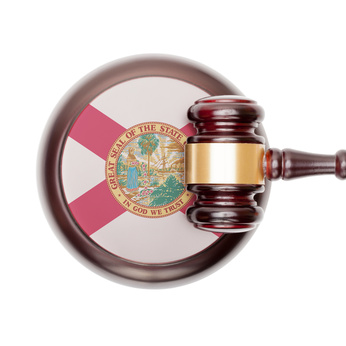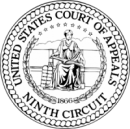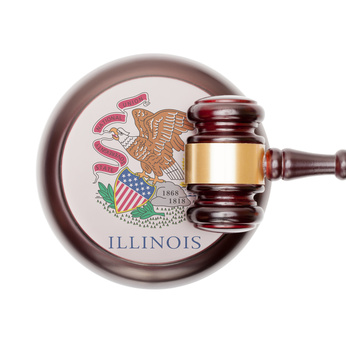Proposed legislation to enact Massachusetts’ Family Financial Protection Act (S. 146 – H. 804) was considered during a hearing before the Joint Financial Services Committee on Oct. 27. The legislation, in part, defines active and passive debt buyers as “debt collectors.” It also places limits on garnishable wages, establishes a three-year statute of limitations, prohibits revival upon payment, and places limits on a successful plaintiff’s award of interest and attorney’s fees. The legislation contains the following: “Debt Buyer” means a person or entity that purchases delinquent or charged-off consumer loans or consumer credit accounts, or other delinquent consumer debt for collection purposes, whether it collects the debt itself or hires a…
Three consent decrees issued over the past few months present clear challenges for the debt buying industry, creditors and companies that provide services to them. The first, between the Consumer Financial Protection Bureau and JP Morgan Chase Bank, contained an agreement altering the bank’s debt collection activities. The bank also agreed that any debt sold by it would contain a restriction prohibiting resale by the subsequent purchaser. More specifically, and among other things, the Chase Bank Consent Order (copy available here) requires Chase to do the following: Stop selling loans and other debts that: (1) were discharged in Chapter 7 bankruptcy; …
The District Court of Appeal of Florida, First District, recently denied a property owner’s effort to appeal the trial court’s order limiting the property owner’s extensive discovery requests to a mortgagee relating to standing and satisfaction of mortgage. In so ruling, the Appellate Court concluded that the trial court’s order limiting discovery did not effectively eviscerate the property owner’s affirmative defenses. A copy of the opinion is available at: Link to Opinion. A property owner propounded broad discovery requests related to the defenses that the mortgagee lacked standing to foreclose; and that all mortgages on the property had been satisfied…
The U.S. Court of Appeals for the Ninth Circuit, in a case of first impression, recently held that section 1328(f) of the Bankruptcy Abuse Prevention and Consumer Protection Act (BAPCPA), which bars so-called “Chapter 20” debtors from receiving a discharge at the conclusion of their Chapter 13 reorganization if they received a Chapter 7 discharge within four years of filing the petition for Chapter 13 relief, does not prevent a debtor from voiding a secured creditor’s lien under section 506(d) of the Bankruptcy Code. A copy of the opinion is available at: Link to Opinion. In 2007, husband and wife…
The U.S. District Court for the Middle District of Florida recently denied a motion to dismiss an amended complaint alleging that a time-share association violated the Florida Consumer Collection Practices Act (FCCPA) and the federal Telephone Consumer Protection Act (TCPA), holding that: A debtor need not use any precise language or magic word to notify a debt collector that the debtor is represented by legal counsel with respect to a debt; A voicemail message merely asking the debtor to return the call to discuss the debt was a debt collection communication; and Declaratory relief may be available under the TCPA.…
The U.S. Court of Appeals for the Third Circuit recently vacated an order of dismissal based on lack of statutory standing under the federal Telephone Consumer Protection Act, holding that a regular user of a phone line and occupant of the residence of the subscriber has standing to bring an action under the TCPA. In so ruling, the Court held that a caller may invoke the consent of the “called party” as a defense even if the plaintiff is someone other than the “called party.” The Court also held that, under Fed. R. Civ. P. 12(g)(2), it was error for…
The U.S. Bankruptcy Court for the Middle District of Florida recently held that, at a minimum, “surrender” under Bankruptcy Code §§ 521 and 1325 means a debtor cannot take an overt act that impedes a secured creditor from foreclosing its interest in secured property. In so holding, the Court found that actively contesting a post-bankruptcy foreclosure case is inconsistent with a “surrender” of the property. A copy of the opinion is available at: Link to Opinion. The Court addressed two separate bankruptcy cases. The first was a Chapter 7 bankruptcy case, in which the mortgagee instituted a foreclosure action five…
The Illinois Appellate Court, First District, recently affirmed dismissal of the last of several post-judgment challenges to a default foreclosure judgment, holding that the borrower failed to present a sufficient record on appeal, failed to present sufficient evidence to vacate the default judgment, and also waived any objection to the jurisdiction of the trial court. A copy of the opinion is available here: Link to Opinion. In November 2011, a bank filed a complaint for foreclosure against the borrower for defaulting on his mortgage. The borrower was served in December 2011, but never answered. The bank filed a motion for…
The U.S. Court of Appeals for the Eleventh Circuit recently affirmed the entry of summary judgment against homeowners who sued under the federal Truth in Lending Act (TILA) for an alleged failure to disclose certain financing terms in connection with a water treatment system, holding that because the credit agreement did not create a security interest in the home and the system was not a fixture, the relevant TILA provisions were not violated because both depend on a security interest in the residence. A copy of the opinion is available at: Link to Opinion. The plaintiff homeowners signed an agreement…
The U.S. Court of Appeals for the Ninth Circuit recently reversed the dismissal of a class action that was removed to federal court under the federal Class Action Fairness Act (CAFA). In so ruling, the Court held that the case fit the narrow “local controversy exception” to CAFA’s grant of federal court jurisdiction. A copy of the opinion is available at: Link to Opinion. The trial court found it had jurisdiction over a class removed from state court under CAFA. Then, the trial court dismissed the suit for failure to state a claim. However, the Appellate Court focused its analysis…
The U.S. Court of Appeals for the Fifth Circuit recently held that an assignment of a mortgage deed of trust (“DOT”) from Mortgage Electronic Registration Systems (“MERS”) to an assignee (“Assignee”) was valid under Texas law, because MERS was specifically named as a beneficiary in the DOT and was vested with the power to exercise the rights set forth in the DOT. Therefore, the Court held, MERS was a valid beneficiary under the Texas Property Code and contract law, and the assignment from MERS to Assignee was valid. The Fifth Circuit further held that the Borrowers lacked standing to challenge…
The Third District Court of Appeal of the State of Florida recently affirmed the entry of summary judgment in favor of a mortgagee and against the purchaser at a condominium association assessment foreclosure sale based on the after-acquired title doctrine. A copy of the opinion is available at: Link to Opinion. In July 2007, the borrowers obtained a mortgage loan secured by a condominium unit at a luxury building in Miami Beach. Although the mortgage contained the usual covenant that the borrowers owned legal title to and had the right to mortgage the property, the property was in fact owned…











